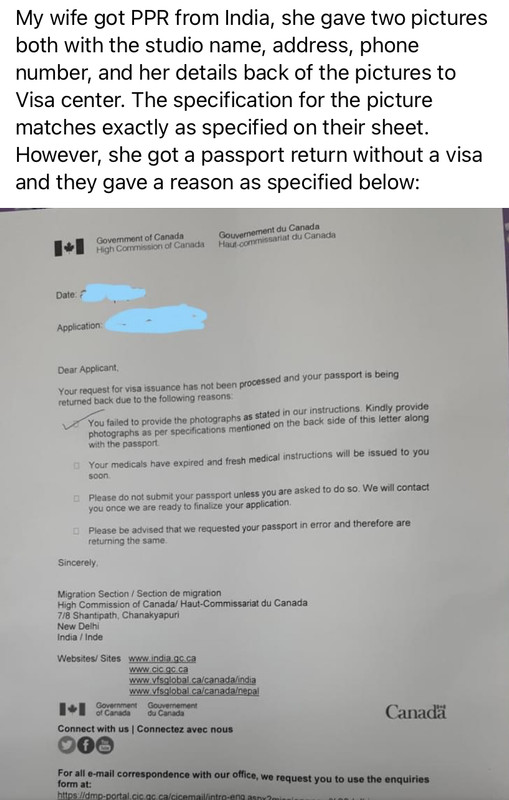How Canada can improve immigrant outcomes and fill labour gaps in essential services: study
A recent Conference Board of Canada study offers suggestions to improve the nature of essential work in Canada.
Canada’s immigration system is designed to fill labour shortages, and yet the current system is not keeping up with the demand for essential workers.
One of the reasons is that Canada has a number of
immigration pathways for workers in “skilled occupations,” which do not always include jobs that are in-demand. Also, the process for regulated industries, such as nursing, result in fewer qualified workers being able to work in the field that they trained for.
The Conference Board of Canada recently released a study offering recommendations on how policy can improve the situation for the Canadian labour market, and for immigrants who find themselves underemployed. The study is called
Valued Workers, Valuable Work: The Current and Future Role of (Im)migrant Talent, and it is written by Dr. Yilmaz Dinc.
Immigrants make up nearly a quarter of Canada’s workforce, with high percentages working in food manufacturing, truck transportation, nursing and residential care facilities.
Canadian-born workers generally avoid essential occupations, as these jobs are often undervalued, offer low compensation, and lack career mobility. As a result, newcomers tend to take on these jobs, even though they may be overqualified. For example, about 40 per cent of newcomers working as childcare providers and support workers are overqualified, meaning they have university degrees, yet these occupations do not require advanced education.
Overqualification is a problem for both immigrants working in essential jobs, and employers. If immigrants are underemployed they are not making the best use of their education and skills, which limits their earnings, career prospects, and economic contributions. It is a problem for employers because overqualification is associated with lower job satisfaction, which makes it difficult to retain employees.
What follows is a summary of the study’s recommendations on how to fix the gaps in essential sectors, and improve outcomes for immigrants.
Offer permanent residency pathways for essential workers
To mitigate overqualification in essential occupations, the study suggests that there should be more pathways to permanent residence for essential workers. Currently, federal immigration programs cater more to immigrants with degrees. Therefore, employers have to fill job vacancies with overqualified immigrants or temporary residents.
The report offers two solutions to address challenges with overqualification. One, Canada should give out more points in the
Express Entry system for essential work. Express Entry is an online application management system for some of the largest immigration programs such as the
Federal Skilled Worker Program and the
Canadian Experience Class. The
Federal Skilled Trades Program is also managed by Express Entry, but it is less popular.
With more points in the Express Entry system, comes a higher chance that candidates will be invited to apply for Canadian immigration. The study is basically saying that if essential work was valued on the Express Entry points system, it would give essential workers a better shot at permanent residency.
The second recommendation is to learn from policy initiatives like the one-time
Temporary Residence to Permanent Residence (TR to PR) pathway. In the middle of the pandemic, Canada launched this program in an effort to admit 90,000 temporary workers in essential occupations and recent graduates. Candidates needed to have a job offer, and meet basic language requirements, and apply before November 5, or until the intake caps were reached. For the international graduate’s stream, the cap was reached within
25 hours. The non-healthcare essential workers stream filled up in roughly
two months, whereas only 7,155 out of a possible 20,000 healthcare workers applied before the deadline.
Collaboration with employers and governments
Essential workers often work in more labour-intensive jobs, but the high pay goes to people in high-skilled occupations. To address this, the study calls on the government to collaborate with employers and make essential work more attractive with better compensation and benefits.
The Conference Board study also calls for more collaboration between employers and the government to prevent the exploitation of temporary workers. Currently, foreign workers are put in a vulnerable position if their work permit ties them to one particular employer. While employers are responsible for upholding Canadian labour standards, federal and provincial authorities can also oversee employers and ensure compliance.
Credential recognition
Credential recognition is a long-standing challenge for newcomers, and it is one of the main drivers of overqualification. The credential recognition process is complex, lengthy, and costly. It prevents immigrants from working in jobs they might be otherwise qualified for, such as the qualified nurse who is working as a nurse’s aide.
It is a multi-faceted issue that does not have one clear answer. Employers’ individual perceptions of foreign education and work experience further exacerbate the problem.
“Bias and discrimination in hiring continue to push some immigrants to easy-to-access essential jobs that don’t leverage their full set of skills,” the study says. “The government needs a coordinated response to this intricate web of challenges that requires close collaboration with employers, regulators, and other relevant bodies.”
Analyze Canadian work permit data
The Conference Board also says the government should analyze the
International Mobility Program (IMP) and its economic impact. The IMP was created to address Canada’s broad economic, social, and political objectives. Unlike the
Temporary Foreign Worker Program, it does not require employers to do a
Labour Market Impact Assessment (LMIA).
As it is, there are limited public data on which temporary resident groups are coming through the IMP, and which sectors they work in. There is therefore a lot of missing information. More data could help researchers understand whether essential sectors are relying on IMP work permits. Also, what would the implications of increasing employer reliance on the IMP be, in terms of access to labour and employment outcomes of immigrants?
“The absence of a labour market impact assessment in IMP could underestimate the impact of hiring a temporary worker on the local job market, potentially intensifying job competition,” the study says.
In addition, the government should adopt a data-driven intersectional policy lens to address bias and discrimination in the labour market, the study says.
“This starts with collecting data on multiple facets of the identities of the workforce, such as race, gender, and immigration status, and linking it to employment outcomes,” Dinc writes.
The study says this would help researchers understand which groups work in which occupations and sectors, under what conditions, through which immigration pathways, and where the change is needed. These efforts could help inform immigration policy, and targeted policies for sectors and occupations.
Create career mobility pathways
The final recommendation in the study is for policymakers to expand career advancement and mobility pathways in essential jobs. As it is, many essential jobs offer no possibility of career advancement, and it is difficult to switch to other sectors to pursue better employment opportunities, especially for those with visa restrictions, or who work in regulated occupations. This fact also discourages domestic workers from pursuing these careers.
However, the study suggests that improving credential recognition and building more inclusive workplaces is just one part of creating more career mobility in essential occupations.
The other part is recognizing the transferable skills of essential workers and providing them with reskilling and upskilling opportunities to qualify for better-paying roles.
“This might initially seem counterintuitive for retention,” the study says. “However, combined with measures to improve job quality and bring immigrants with the right skill sets, it will ultimately contribute to higher levels of attraction and overall a more fair and sustainable talent pipeline.”








